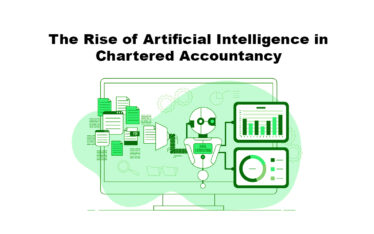What is Cryptocurrency?
Cryptocurrencies are digital tokens. They are a type of digital currency that allows people to make payments directly to each other through an online system. Most cryptocurrencies exist on decentralized networks using block-chain technology. This decentralized structure allows them to exist outside the control of government and central authorities.
In Finance Act 2022, Cryptocurrency and Non-Fungible Tokens (NFTs) were categorized as “Virtual Digital Assets” and Section 2(47A) was added to the Income Tax Act to define this term.
The detailed definition includes any information, code, number or token (not Indian or foreign fiat currency), generated through cryptographic means. The NFTs means such digital assets as notified by the Central Government. In addition to the above, power has been given to the Central Government to notify any other virtual digital asset as virtual digital asset by way of notification in the Official Gazette. Further, Central Government can notify such assets which shall not be considered as virtual digital assets for the purposes.
Is Cryptocurrency an Asset or a Currency?
Although many people use cryptocurrency as a form of digital money, and despite having “currency” in its name, cryptocurrency is not cash or a cash equivalent. These digital assets have more in common with investments such as stocks and bonds, and less in common with cash equivalents such as treasury bills or certificates of deposit.
How to Recognize Cryptocurrencies in Balance Sheet and Income Statement?
The way to account for Crypto in the Balance Sheet and Income Statement depends on the investor / industry.
For Non-Crypto Companies / investors:
For most businesses that do not invest in crypto as a core part of their operations or mine /buy / sell crypto in the ordinary course of business, it is an intangible asset. This means that it should be documented at its purchase price, and not at its fair market value.
For Financial Firms:
The financial firms should account for crypto as an investment. This means that unlike an intangible asset, Crypto should be recorded at its fair value, separate from its purchase price. Financial firms can report the income or expense generated from their cryptocurrency, whether it has been realized or not, and whether it is a net loss or gain.
For Crypto Miners:
The Crypto Miners should record crypto in the balance sheet as inventory. In this case, crypto should be recorded at the lower of the cost and net realizable value.
What is the Taxability of Cryptocurrencies in India?
With the introduction of Section 115BBH, the government’s official stance on cryptocurrencies and other VDAs, was clarified in the 2022 Budget.
As per Section 115BBH,
- The Gains on Sale of Cryptocurrencies are taxed at Flat rate of 30% (plus cess @4%).
- The Tax rate for both Short Term and Long-Term Gain is the same.
- While calculating the Gain no deduction for any expenditure or allowances or set off of any loss, apart from deduction for cost of acquisition, shall be available.
- The losses from transaction in Virtual Digital Assets shall only be set off against gains from transactions in Virtual Digital Assets and shall not be available for set off against any other income.
- And these losses shall not be allowed to be carried forward to subsequent assessment years.
This provision applies to all investors, whether private or commercial, who transfer digital assets during the year. Therefore, gains from trading, selling, or swapping cryptocurrency will be taxed at flat 30% (plus a 4% surcharge) irrespective of whether the income is treated as capital gains or business income.
Is TDS applicable on Cryptocurrencies?
In order to widen the tax base, Section 194S was inserted in the Act which provides for deduction of tax on payment for transfer of virtual digital asset to a resident at the rate of 1%.
However, no deduction will be required where the consideration paid during the FY does not exceed Rs.50,000/- (in case of specified person) or Rs.10,000/- (in any other case).
Specified Person for the purpose of section 194S means
- An Individual/ HUF whose total sales/Gross receipt does not exceed Rs. 1 crore (in case of business) or 50 lacs (in case of profession) during the FY immediately preceding the FY in which such virtual digital asset is transferred.
- Individual/ HUF not having any income from the head “Profit and gains of business or profession.
Where tax is deductible under both section 194-O and proposed section 194S, then tax shall be deducted under section 194S and not under section 194-O.
Taxability on VDA as Gift
In Budget 2022, VDAs were included within the scope of movable properties. Cryptocurrencies received as a gift or transferred for inadequate consideration will be taxed in the hands of recipients.
Crypto received as a gift from relative are exempt from tax but crypto received as a gift from a non-relative exceeding Rs.50,000/- would be taxable.
Cryptocurrency is generally considered safe, although your account’s security depends on the measures you take to protect it. For example, using strong passwords, enabling two-factor authentication, and never sharing your private keys or passwords with anyone is important. Futurists believe that by the year 2030, cryptocurrencies will occupy 25 percent of national currencies, which means a significant chunk of the world would start believing in cryptocurrency as a mode of transaction.





